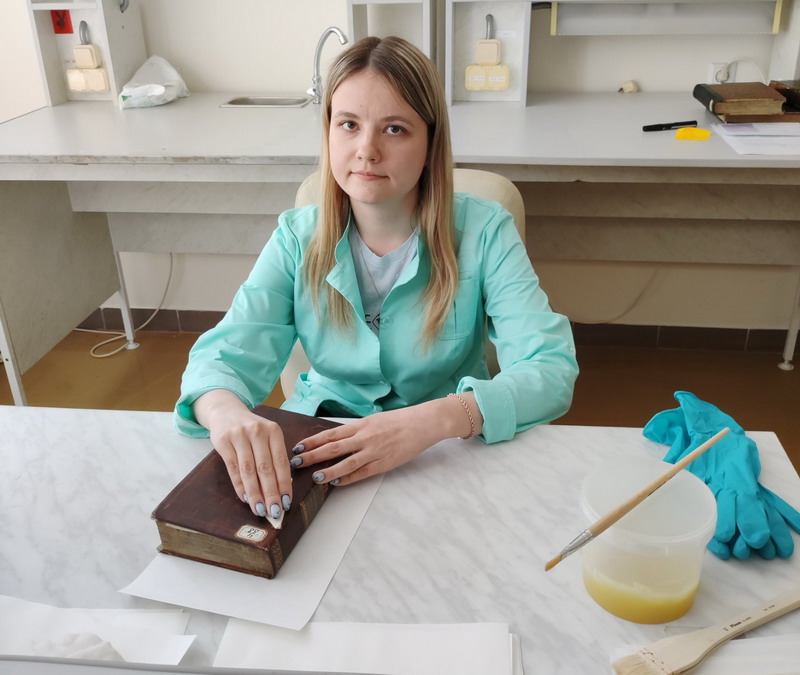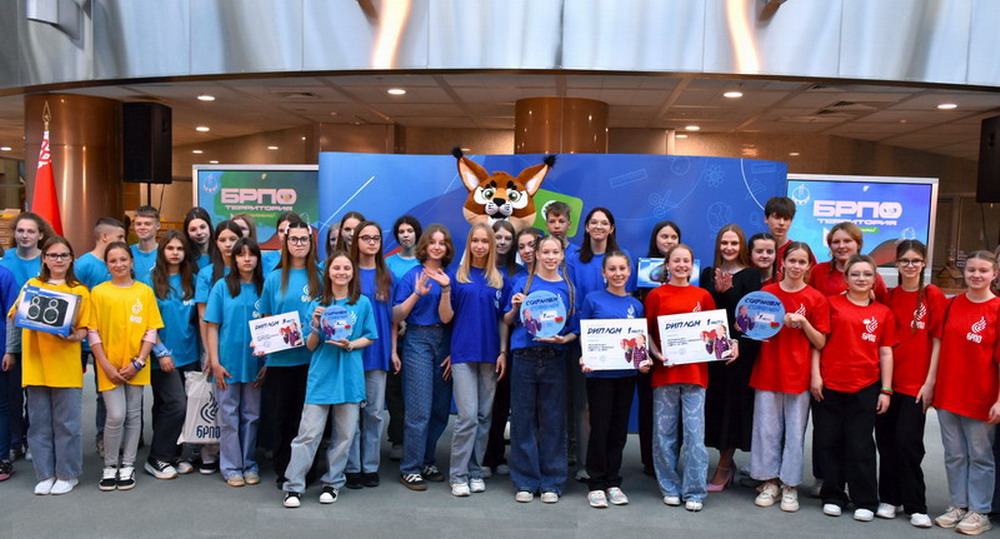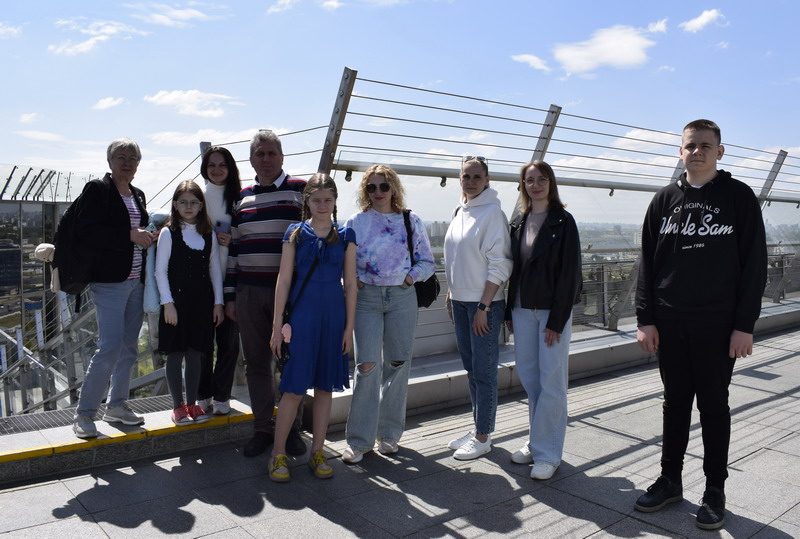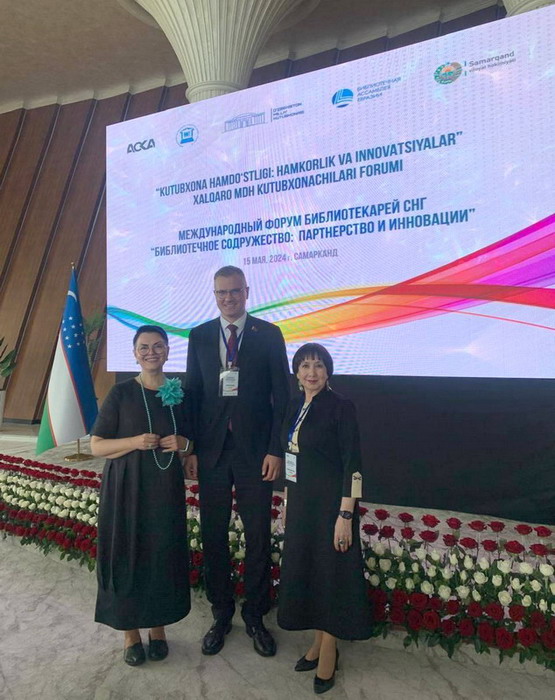A new project of the National Library of Belarus is dedicated to the Great Patriotic War – "Reading newspaper lines with your heart. On the 80th anniversary of the liberation of Belarus from the Nazi invaders."
Every week from January to August 2024, the portal of the National Library publishes materials from newspapers of Soviet Belarus in 1944, reflecting the chronicle of news and events of that time.
March 25th. "By the resolution of the Central Committee of the KP(b)B and the Council of People's Commissars of the BSSR established a commission to investigate the atrocities of the German invaders in the occupied territory of the republic and to provide assistance to Soviet citizens released from concentration camps".
[1418 days of the Great Patriotic War ..., p. 301].
March 26th. The Red Army reached the State border of the USSR – on the Prut River.
Savetskaya Belarus, No. 52, pp. 3-4.
On the territory of Belarus, Red Army soldiers and partisans continued to carry out combat missions.
It was a hot season before sowing. The issue of obtaining a high yield was relevant and urgent. At the highest level – the Central Committee of the KP(b)B and the Council of People's Commissars of the BSSR, – measures were taken to ensure the successful fulfillment of this task, from agitation to the deployment of socialist competition between collective farms [Savetskaya Belarus, No. 50, p. 1].
What other additional food products, and therefore areas of the economy, should be developed? In an article on the front page of the newspaper Za Radzima [No. 40, p. 1], the breeding of bees and poultry, fishing, gardening and horticulture are named. The first steps have already been taken in the part of the collective farms of the Mogilev region: poultry has been purchased, fishing artels have been organized, bee care in apiaries; it is also noted that it is necessary not to miss time and to plant seedlings and seeds in gardens and vegetable gardens on time.
Villagers, returning to their homes from forests and swamps after liberation, immediately gladly took up their usual work. Before the spring work, as the author from Kalinkovich wrote, they repaired inventory, prepared seeds ["Savetskaya Belarus", No. 50, p. 3]:
To help their collective farm, some collective farmers sowed collective farm gardens with their own seeds ["Savetskaya Belarus", No. 50, p. 4].
Employees of the Belarusian Railway were allocated more than a thousand hectares of land for individual and collective vegetable gardens [Savetskaya Belarus, No. 50, p. 4].
Teachers and students of the school in Kostyukovichi have committed themselves to organize Sunday parties and help collective farmers achieve high yields, and to plant 1,000 seedlings in their native Kostyukovichi to green their hometown [Za Radzimy, No. 40].
Another important topic is logging. Wood was used for heating, production of cast iron, production of containers (for ammunition, food products), bodies and trailers for cars, wagons, skis, construction of dugouts, crossings; plywood was used in aircraft and shipbuilding [Balandin, G. Military cubic meters of forest]. For the liberated towns and villages of Belarus, it was important to restore the premises of enterprises and housing stock that were severely damaged during the war: the faster and more forests were harvested, the faster and more could be built and repaired.
In one of the previous issues of the Savetskaya Belarus newspaper, the correspondent briefly talked about the women's logging brigades. And in No. 50 there are several photos about them [Savetskaya Belarus, No. 50, p. 3]:

There were not enough building materials. When clearing the rubble of destroyed buildings, bricks, rebar, and iron products were selected and reused. Gradually, the enterprises for the production of building materials restored their work, but for objective reasons they did not have time. One of the initiatives that was proposed – manual molding (molding) of bricks, tiles and firing in floor stoves – was proposed in the article "Some issues of restoration of the building materials industry in Belarus" [Savetskaya Belarus, No. 50, p. 2].
Another innovation is the organization of construction works using the flow-conveyor method, which significantly reduces downtime and accelerates construction, – said the master of the workshop for the restoration of the wagon section [Savetskaya Belarus, No. 53, p. 3]. At the same time, each process must be provided with tools, materials and labor, and on time.
Timber rafting began at the Narovlyansk rafting site [Savetskaya Belarus, No. 53, p. 2]. Pottery production has been established at one of the brick factories [Savetskaya Belarus, No. 53, p. 4].
And again, the news from the Vesuvius factory.
To train qualified workers, a factory training school was organized here in January, the first students came on February 10; the school director spoke about the establishment of the educational process, about master teachers [Savetskaya Belarus, No. 50, p. 2]
The network of educational institutions was being restored. Young people were recruited to the Mozyr Pedagogical Institute [Savetskaya Belarus, No. 53, p. 4], to paramedic and obstetric schools and nursing courses [Savetskaya Belarus, No. 54, p. 4].
And young tractor drivers and tractor drivers after the courses have already completed internships at workplaces [Savetskaya Belarus, No. 53, p. 3].
Necessary goods were delivered to the liberated areas of Polesie: fishing nets, school supplies, stationery, haberdashery and manufactory [Savetskaya Belarus, No. 51, p. 4].
Belarus was also helped from other regions of the USSR: in the Udmurt ASSR, the sister city of the BSSR, an echelon of 41 wagons was assembled [Savetskaya Belarus, No. 53, p. 1; No. 54, p. 3], in which agricultural products, machinery, various equipment, tools, household goods were sent to Belarus; factories transferred equipment and spare parts, one of the collective farms allocated pets, schoolchildren collected textbooks and geographical maps [Savetskaya Belarus, No. 54, p. 3].
The artists of the Bolshoi Theatre of Belarus came on tour to the liberated Gomel, needless to say that the audience welcomed them here with great joy [Savetskaya Belarus, No. 51, p. 4]. The artists of the theater also performed on the radio in a program for Belarusian partisans [Savetskaya Belarus, No. 53, p. 2]:
The Musical Comedy Theatre also actively worked in the liberated cities [Savetskaya Belarus, No. 53, p. 4]:

The artistic brigades of the Belarusian State Musical Comedy Theater (early 1930s - 1949) during the Great Patriotic War gave performances and concerts in military units, hospitals, cities and other settlements in the liberated territories of Belarus [Zapartyko, A. Archival Detective].The Mozyr cinema hosted a screening of the film "Wait for me" [Savetskaya Belarus, No. 53, p. 4]:

"Wait for Me" is a Soviet war drama film based on the poem of the same name by poet and writer K. Simonov at the Central United Film Studio of Feature Films during the Great Patriotic War. It was released on the screens of the USSR on November 22, 1943. The screenplay was written by K. Simonov, directed by A. Stolper, B. Ivanov.And at the Vesuvius factory they shot a story (perhaps for newsreels) about how the production of matches is organized [Savetskaya Belarus, No. 51, p. 4]:
There were 22 weeks left before the liberation…
The material was prepared by L. G. Tupchienko-Kadyrova,
Candidate of Historical Sciences, chief bibliographer
of the information and analytical department.
Sources
Newspapers*
The full news papers issues are available on links.
- За Радзіму : орган Магілёўскага абласнога і гарадскога КП Беларусі і абласнога і гарадскога Савета дэпутатаў працоўных, 1944, № 40.
- За Радзіму, 1944, № 41.
- Калгаснік Капыльшчыны : орган Капыльскага райкома КП Беларусі і раённага Савета дэпутатаў працоўных, 1944, № 14.
- Раздавім фашысцкую гадзіну : газета-плакат : выданне ЦК КП(б) Беларусі. – 1944, № .
- Савецкая Беларусь : орган ЦК КП(б) Беларусі, Саўнаркома і Прэзідыума Вярхоўнага Савета БССР, 1944, № 50, 51, 52, 53, 54.
- Савецкая Беларусь, 1944, № 51.
- Савецкая Беларусь, 1944, № 52.
- Савецкая Беларусь, 1944, № 53.
- Савецкая Беларусь, 1944, № 54.
*The titles of the newspapers are given accordance to modern spelling.
Books, articles
- Баландин, Г. Военные кубометры леса / Г. Баландин // Лес и деревообработка. – Рэжым доступу: https://lesozagotovka.com/rybriki/istoriya-lesozagotovok/voennye-kubometry-lesa/. – Дата доступу 15.03.2024.
- Запартыко, А. Архивный детектив: забытый театр. Оперетта для военного поколения / А. Запартыко // Звязда. – 2022. – 4 мая. – Рэжым доступу: https://zviazda.by/ru/news/20220504/1651650861-arhivnyy-detektiv-zabytyy-teatr-operetta-dlya-voennog.... – Дата доступу 18.03.2024.
- 1418 дней Великой Отечественной войны : хронология событий : хронология событий : [солдату Великой Отечественной посвящается / сост. Е. В. Малашевич ; науч. ред.: Е. И. Барановский, Г. И. Баркун ; фото: В. В. Харченко]. – Минск : Мастац. літ., 2014. – 421, [1] с.
- Плакат (выкарыстаны як афіша).
- Корецкий, В.Б. Обеспечим высокий урожай в 1944 году! Дадим фронту и стране больше продовольствия! [Изоматериал] : [плакат] / художник В. Корецкий. – Москва ; Ленинград : Искусство, 1944 (Москва : Типография “Красный пролетарий”). – 1 л. – З фонду НББ.










